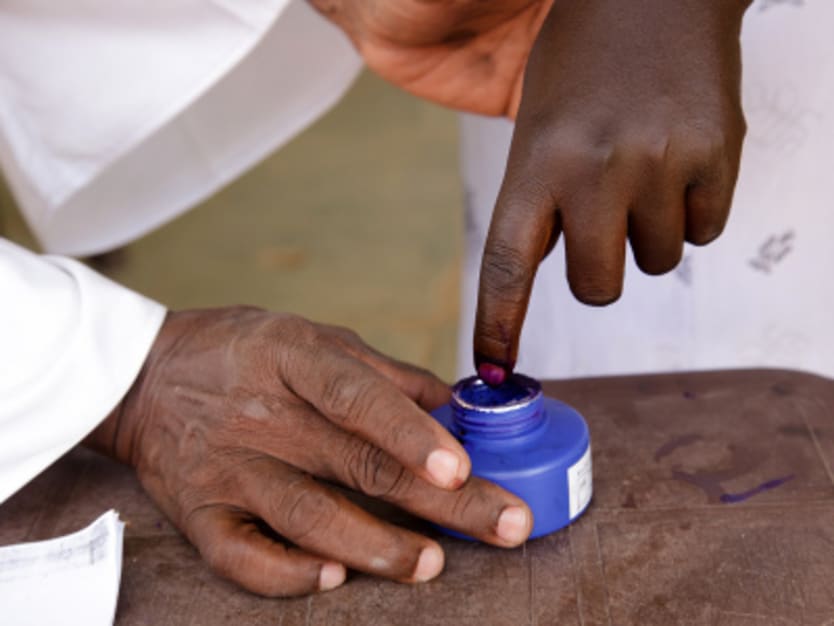
The southern Sudan plebiscite presents many problems, but it also provides possibilities.
South Sudan’s referendum seems to have gone relatively well. Millions went to cast their vote. There was violence, some were killed. There were technical and logistical problems. But, so far, it seems to have been a credible vote. It’s a moment to celebrate.
Africa’s longest conflict, Sudan’s north/south civil war, claimed more than 2 million lives and displaced over 4.5 million people. There was vicious violence, horrendous atrocities, and unimaginable suffering. Since the Comprehensive Peace Agreement, or CPA, was signed in 2005, its implementation has been imperfect: marked by broken commitments, low-intensity violence, the Abyei flair-up, disappointments and distrust. Nonetheless, the persistence, patience and performance of the south Sudanese have permitted progress, however halting.
This vote is a hinge event. But it is not the end of the story. It may be the beginning of the end of a heritage, history and habit – or death, destruction and despair.
Indispensable to getting from war to the successful referendum vote were the efforts of the donor community. Humanitarian assistance has helped care for and feed the southern Sudanese. Development aid has helped improve social services, infrastructure and governance capacity. Thousands of dedicated workers for donor governments, international organizations and a myriad of non-governmental organizations have been heroes in Sudan, often in very difficult circumstances.
These extraordinary efforts helped sustain the people of southern Sudan and provide space for the difficult, often very contentious, diplomatic and political work to continue. But much is yet required if the result of the referendum is to be honored and a sustainable peace is to be achieved.
First and foremost, this will depend on the south Sudanese, their leaders and their former foes in Khartoum. But to mend this society torn asunder, to move from fear and fragility to renewal and rebirth, will require continues political engagement from the international community and development assistance from the donor community and their legions of dedicated workers.
Some immediate humanitarian assistance is still required, especially for the thousands of southerners long displaced in the north who have and will continue to travel home. But there also is an urgent requirement to develop the land that is set to become Africa’s newest independent state. Half of the South Sudanese live on less than 75 cents a day.
Creating ‘peace dividends’
Thirty days after the referendum vote, the count will be certified. Everyone anticipates that the vote overwhelmingly will be for separation. There will be precious little time to sort out many contentious disputes before the July, 2011, separation.
Politicians and diplomats will have to go beyond vague discussions, and agreements in principle, on issues such as contested border areas, oil revenue sharing, the fate of the Abyei region and citizenship. Final determinations are now required and specific, verifiable implementation needed. This will be extremely challenging, but it is necessary to avoid renewed widespread violence.
Security in the south and violence between the south and its neighbors, including Khartoum, must be avoided through political accommodations, agreements, and the normal personnel policies and practices of professional security forces.
Beyond basic needs, there must be a “peace dividend.” Education, health and other basic social services must improve and there needs to be growing economic activity. Capacity must be built for good governance.
In and around Juba, there already was a flurry of private economic activity in the run-up to the referendum by those anticipating independence. Hotels have been built, the appearance of mobile phones has exploded, and many roads in Juba have been paved. A few foreign-owned factories have appeared. There seems to be nascient economic activity everywhere in Juba.
But so far there is little evidence of this economic activity spreading out to other South Sudanese cities, villages and into the countryside. This is required if southern Sudan is to become self-sustaining and secure.
Fortunately, southern Sudan has rich arable land with abundant rain. The agricultural potential is enormous, enough to feed the southerners and have ample exports. Sustainable agricultural development must be a priority. And to get agricultural produce to markets within southern Sudan and for exports, bridges and paved roads will be required.
Improved health care and education, long denied due to discrimination, must now come.
And capacity is required for to improve governance and transparency, expand civil society and political parties, develop the rule of law, bring rights and protections to women, and bring cohesion to fragmented militias, many of whom have been grafted onto the Sudan People’s Liberation Army and the police, but not truly integrated into a modern, unified, trained and disciplined security force.
This enormous array of development work must proceed quickly to provide the “peace dividend” that will buy time for the adjustments required for the transition from a conflict zone to one of stability and growth. And it must happen at a time of enormous domestic political stress in Juba as ambitions contained in the struggles to confront Khartoum and to fully implement the CPA will be unleashed in the scramble for position and privilege in a transitional state turned a newly independent one.
There also will be stress from outside. Not only will a new independent south be politically, socially and economically fragile, but the remaining government of northern Sudan, having presided over the dismembering of their state, will face its own crisis of legitimacy. Robust internal jockeying, perhaps overreach by rebel movements in Darfur, turbulence in the Nuba mountains and other traditionally marginalized areas, and a significant fall in oil revenues will unsettle the north and threaten stability.
These circumstances, needless to say, will make it very challenging to deliver the enormous amount of urgently needed development assistance.
After long ignoring the atrocities committed in southern Sudan, the international community engaged successfully in brokering the Comprehensive Peace Agreement, supporting its imperfect implementation and responding to the enormous humanitarian needs of the people. Southern Sudan now is at the tipping point. If history is to record a successful, stable and sustainable new nation in southern Sudan, the development work well begun must now be renewed, the efforts increased. In this case, smart assistance can be the midwife of rebirth and renewal.
Read a guest opinion written exclusively for Devex by Hilde F. Johnson, an assistant secretary general of the United Nations who, as Norway’s minister of international development in the late 1990s and early 2000s helped negotiate the Sudan peace accord.
